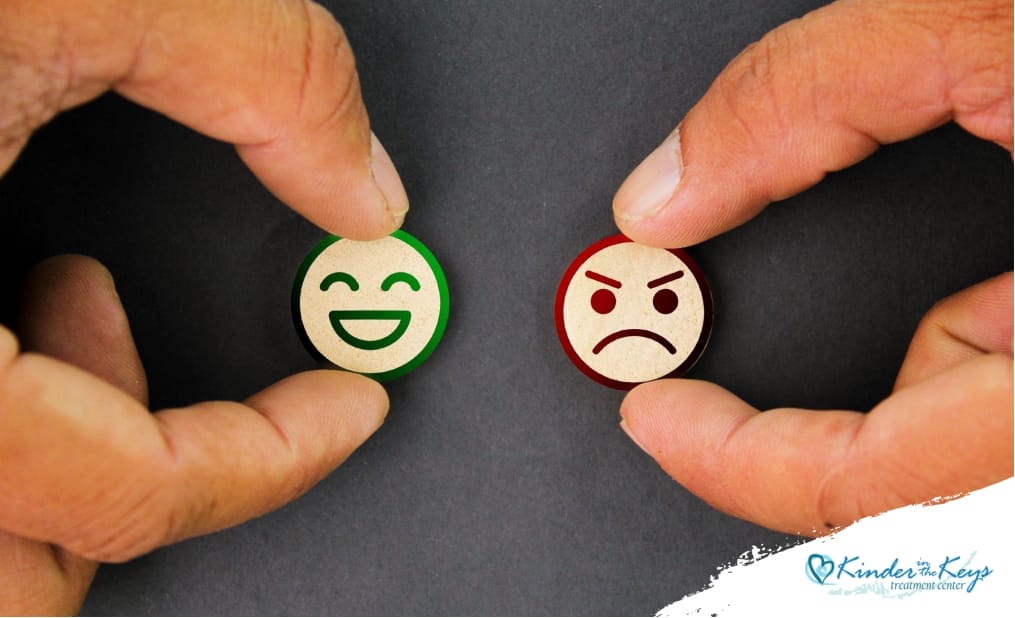Signs of high-functioning depression don’t always look like what we see in TV shows or read about in textbooks. Sometimes, it shows up in the life of a successful executive who never misses a deadline, the straight-A student who leads multiple clubs, or the parent who seems to manage their household effortlessly.
These individuals may be experiencing high-functioning depression, a condition that often goes unrecognized precisely because those who live with it appear to be thriving. For many people, the challenge lies in recognizing the signs of depression when symptoms don’t match common expectations.

What is High-Functioning Depression?
High-functioning depression, clinically known as persistent depressive disorder (PDD), is a chronic form of depression and a mental illness that can last for two years or more. Unlike its better-known cousin, major depressive disorder (MDD), which often presents in severe episodes that disrupt daily life, PDD allows individuals to maintain their regular activities while battling persistent feelings of depressed mood.
The term “high-functioning depression” can be misleading. Many people continue managing successful careers, maintaining relationships, and achieving goals—all while experiencing clinical depression symptoms like persistent sadness, low self-worth, and fatigue. This ability to “keep going” often masks the severity of their condition and can prevent them from seeking help.
The impact on daily life is subtle but significant. Someone might excel at work while struggling to find joy in their accomplishments. They might maintain an active social life while feeling emotionally disconnected from every interaction. This disconnect between external success and internal struggle creates a unique burden – one where personal achievements provide little relief from the persistent weight of depression.
Understanding high-functioning depression means recognizing that success and suffering can coexist. Your ability to maintain daily responsibilities doesn’t make your struggle any less real or worthy of treatment.

Common Signs and Symptoms of High-Functioning Depression
High-functioning depression can be challenging to identify because many people who experience it continue to excel in their daily lives. However, certain patterns and depressive symptoms often emerge, even when someone appears to be managing well on the surface.
Perfectionism and Overachievement
Living with high-functioning depression often involves an overwhelming drive for perfection. You might find yourself obsessing over minor details, repeatedly checking work, or pushing yourself beyond reasonable limits. This perfectionism isn’t just about high standards – it becomes an exhausting cycle of seeking validation through achievement, only to find that no amount of success feels sufficient.
Persistent Self-Criticism
Even small mistakes can trigger waves of harsh self-judgment. This internal critic tends to minimize accomplishments while amplifying perceived failures. You might struggle to accept compliments, constantly feel like an impostor despite your achievements, or spend excessive time ruminating over minor mistakes that others would likely forget.
Sleep Changes Despite Regular Routines
While you may maintain a consistent sleep schedule, the quality of rest often suffers. This might mean lying awake despite physical exhaustion, waking up frequently throughout the night, or sleeping the recommended hours yet still feeling drained. These changes persist even with good sleep habits.
Subtle Social Withdrawals
The changes in social behavior are often gradual and easily rationalized. You still show up for important yet sometimes stressful life events and maintain relationships. Still, you might find yourself leaving early, taking longer to respond to messages, naturally causing relationship difficulties or feeling unusually drained after social interactions that once energized you.
Physical Manifestations
This major depression doesn’t just affect your mood—it manifests physically. Common symptoms include persistent fatigue that rest doesn’t cure, unexplained headaches or body aches, and changes in appetite. Some people experience weight changes while maintaining their regular eating schedule out of habit or discipline.
Emotional Numbness to Success
Perhaps the most telling sign is difficulty experiencing joy, even when achieving significant goals. Promotions, awards, or personal milestones that should bring satisfaction feel oddly empty. While you can recognize these accomplishments intellectually, the emotional reward remains elusive.
Related Article: Depression Checklist for Early Diagnosis
Why High-Functioning Depression Often Goes Unrecognized
High-functioning depression frequently hides in plain sight, masked by outward success and societal expectations. Many people struggling with this condition go years without seeking help, often because the signs are subtle and easy to dismiss in our achievement-oriented culture—especially during high-stress periods or seasonal transitions, such as the holidays. In these moments, learning how to spot depression during the holidays can be particularly important.
Social Stigma and Misconceptions
Traditional views of depression often focus on more visible symptoms like inability to work or complete daily tasks. However, depression can present differently depending on personal, social, and biological factors. Understanding what depression looks like in women vs. men helps explain why high-functioning depression is frequently misunderstood or overlooked.
The Mask of Productivity
High achievement often becomes a coping mechanism, creating a convincing facade that everything is fine. People with high-functioning depression frequently excel at work or school, using their accomplishments as proof that they’re “okay” while masking their internal struggles.
Internal Pressure to “Keep It Together”
Many individuals with high-functioning depression feel intense pressure to maintain their outward success, worrying that admitting to depression might damage their professional reputation or relationships. This creates a cycle where asking for help feels like admitting defeat, leading many to suffer in silence.
Cultural and Societal Expectations
Our society celebrates pushing through difficulties and maintaining a positive outlook, regardless of internal struggles. For many professionals, parents, and high achievers, these expectations combine with the pressure to appear “strong,” creating additional barriers to recognizing and addressing mental health needs. These pressures disproportionately affect women, helping explain why females experience depression at higher rates than men.
The Hidden Toll
While individuals with this mental illness often maintain their external responsibilities and seemingly manage high-functioning depression with no issue, the condition exacts a significant personal cost that builds over time. The professional impact is subtle but profound—despite maintaining high performance, individuals experience intense anxiety about work, struggle with decision fatigue, and face a higher risk of burnout.
Relationships often suffer as the energy required to maintain a professional facade leaves little capacity for emotional connection, leading to withdrawal from intimate relationships and decreased engagement in previously enjoyable social activities. The physical toll accumulates through disrupted sleep patterns, weakened immune function, and stress-related conditions like chronic headaches and digestive issues.
Perhaps most concerning is that without proper treatment, the continuous strain of maintaining outward success while struggling internally creates vulnerability to more severe depression, particularly during times of significant stress or life changes.

When to Seek Help From a Mental Health Professional
When high-functioning depression persists, sure warning signs may indicate it’s time to reach out for professional support. While you might still be managing your daily responsibilities, persistent feelings of overwhelm, increased difficulty in maintaining your usual standards, or finding yourself relying on unhealthy coping mechanisms like overworking or social withdrawal are key indicators that professional help could be beneficial.
Consider how your symptoms affect your quality of life, even if they seem manageable. If you consistently feel disconnected from your achievements, struggle to find pleasure in activities you once enjoyed, or notice that maintaining your usual routine requires significantly more effort, these are valid reasons to seek support—even if you’re still “functioning well” by external standards.
Early intervention can prevent high-functioning depression from deepening into a more severe condition. Professional treatment can help you develop healthier coping strategies, address underlying issues, and improve your quality of life before symptoms worsen. Many people find that to seek treatment earlier allows them to maintain their professional and personal lives while working through their depression, rather than waiting until a crisis forces them to step back.
Moving Beyond the Mask
High-functioning depression challenges our traditional understanding of what depression looks like, reminding us that mental health struggles don’t always align with societal expectations. While those living with this condition often maintain impressive achievements and responsibilities, the internal toll deserves recognition and compassionate support. Understanding and acknowledging these hidden struggles is crucial not only for those experiencing them but also for creating a society where seeking help isn’t seen as contradicting success.
